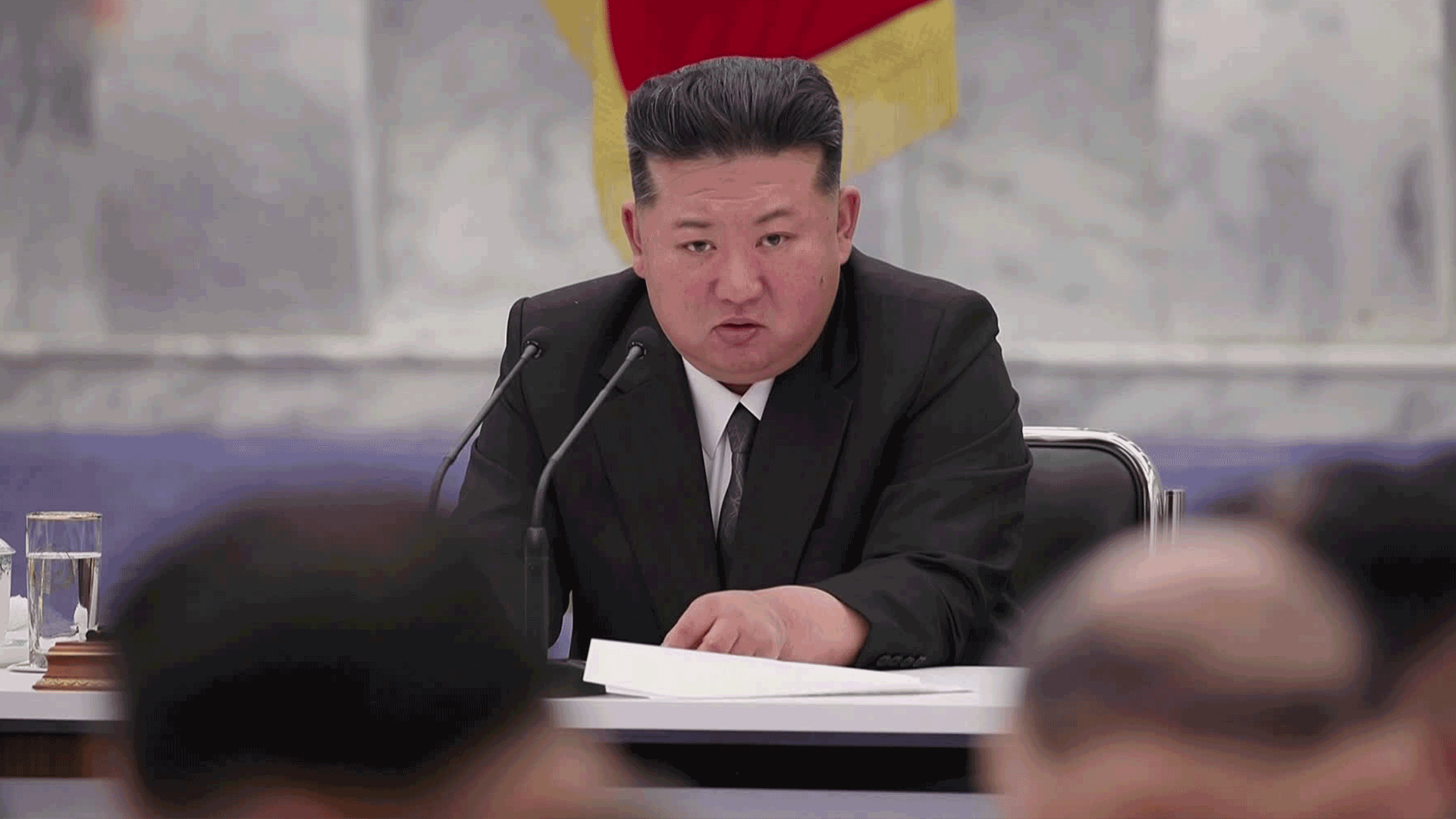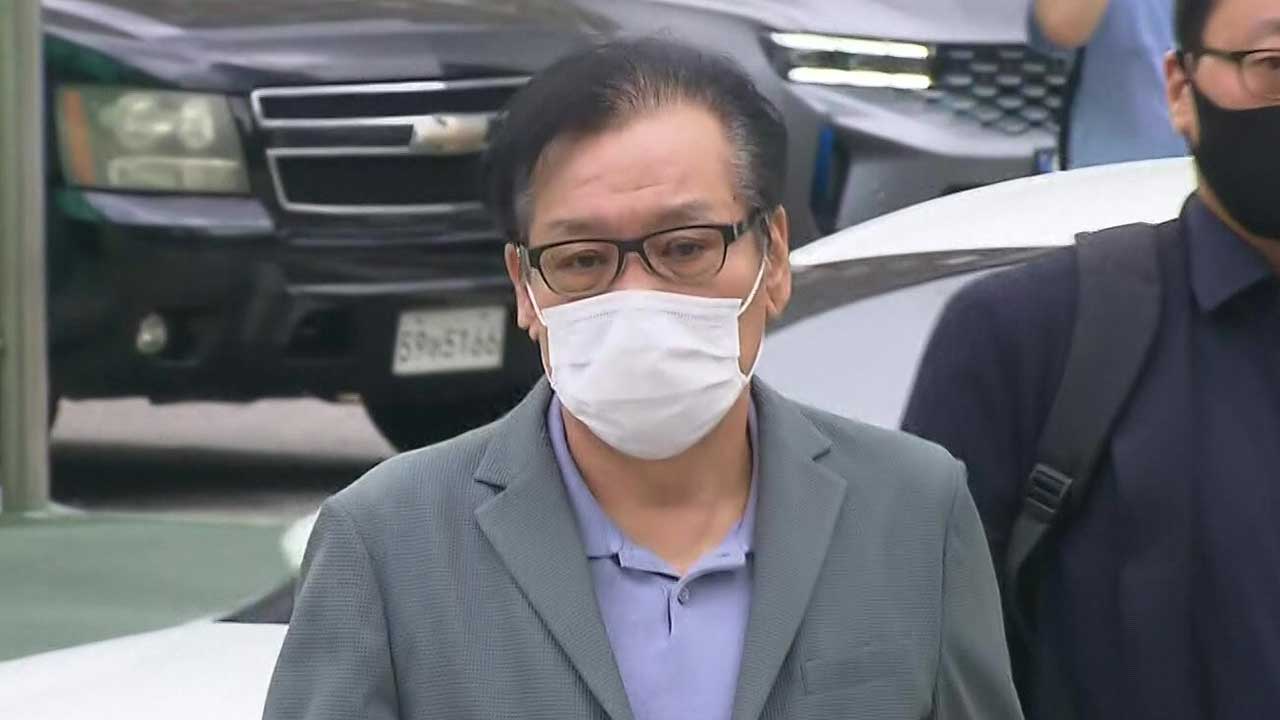Phased denuclearization plan returns
입력 2025.08.22 (00:11)
읽어주기 기능은 크롬기반의
브라우저에서만 사용하실 수 있습니다.
[Anchor]
The three-step denuclearization plan announced today (Aug. 21) is not entirely new.
There was a similar nuclear freeze approach during the Moon Jae-in administration.
Reporter Yang Min-cheol analyzes why the phased denuclearization is being brought up again at this point.
[Report]
[Moon Jae-in/Then-President/June 28, 2017: "Nuclear freeze is the entrance to dialogue, and the exit of that dialogue is complete nuclear dismantlement..."]
President Lee Jae Myung's three-step denuclearization is similar to former President Moon Jae-in's approach of nuclear freeze as an entry point.
It is being evaluated that this is a realistic approach to bring North Korea to dialogue, as it has advanced its nuclear capabilities since then.
[Park Won-gon/Professor, Department of North Korean Studies, Ewha Womans University: "The reason for the failure of the 2019 North Korea-U.S. talks wasn't phased denuclearization, but rather the adoption of the comprehensive, Libya-style settlement model. North Korea has a very strong aversion to that. That is why a more realistic alternative, the three-step method, is being considered now."]
There are concerns that presenting our solution first at this point, rather than jointly announcing a North Korean nuclear solution through a summit between South Korea and the U.S., could backfire.
[Hong Min/Senior Research Fellow, Korea Institute for National Unification: "North Korea has expressed a very fundamental rejection of denuclearization, so the question remains as to whether it is appropriate for South Korea to independently present a series of models for denuclearization first at this point..."]
Meanwhile, some interpretations highlight a broader regional consensus, citing Japanese media coverage that reflects Japan’s own heightened concerns over the North Korean nuclear threat.
[Cho Sung-ryul/Visiting Professor, Gyeongnam University: "Freezing and reducing alone does not alleviate the threat to South Korea and Japan. This joint stance of south Korea and Japan can be seen as a message to the U.S. that we must not abandon the goal of full denuclearization."]
In response to concerns that phased denuclearization might imply recognition of North Korea as a nuclear state, the government reiterated that the complete denuclearization of North Korea is a common goal of the international community, including South Korea and the U.S.
This is KBS News, Yang Min-cheol.
The three-step denuclearization plan announced today (Aug. 21) is not entirely new.
There was a similar nuclear freeze approach during the Moon Jae-in administration.
Reporter Yang Min-cheol analyzes why the phased denuclearization is being brought up again at this point.
[Report]
[Moon Jae-in/Then-President/June 28, 2017: "Nuclear freeze is the entrance to dialogue, and the exit of that dialogue is complete nuclear dismantlement..."]
President Lee Jae Myung's three-step denuclearization is similar to former President Moon Jae-in's approach of nuclear freeze as an entry point.
It is being evaluated that this is a realistic approach to bring North Korea to dialogue, as it has advanced its nuclear capabilities since then.
[Park Won-gon/Professor, Department of North Korean Studies, Ewha Womans University: "The reason for the failure of the 2019 North Korea-U.S. talks wasn't phased denuclearization, but rather the adoption of the comprehensive, Libya-style settlement model. North Korea has a very strong aversion to that. That is why a more realistic alternative, the three-step method, is being considered now."]
There are concerns that presenting our solution first at this point, rather than jointly announcing a North Korean nuclear solution through a summit between South Korea and the U.S., could backfire.
[Hong Min/Senior Research Fellow, Korea Institute for National Unification: "North Korea has expressed a very fundamental rejection of denuclearization, so the question remains as to whether it is appropriate for South Korea to independently present a series of models for denuclearization first at this point..."]
Meanwhile, some interpretations highlight a broader regional consensus, citing Japanese media coverage that reflects Japan’s own heightened concerns over the North Korean nuclear threat.
[Cho Sung-ryul/Visiting Professor, Gyeongnam University: "Freezing and reducing alone does not alleviate the threat to South Korea and Japan. This joint stance of south Korea and Japan can be seen as a message to the U.S. that we must not abandon the goal of full denuclearization."]
In response to concerns that phased denuclearization might imply recognition of North Korea as a nuclear state, the government reiterated that the complete denuclearization of North Korea is a common goal of the international community, including South Korea and the U.S.
This is KBS News, Yang Min-cheol.
■ 제보하기
▷ 카카오톡 : 'KBS제보' 검색, 채널 추가
▷ 전화 : 02-781-1234, 4444
▷ 이메일 : kbs1234@kbs.co.kr
▷ 유튜브, 네이버, 카카오에서도 KBS뉴스를 구독해주세요!
- Phased denuclearization plan returns
-
- 입력 2025-08-22 00:11:13

[Anchor]
The three-step denuclearization plan announced today (Aug. 21) is not entirely new.
There was a similar nuclear freeze approach during the Moon Jae-in administration.
Reporter Yang Min-cheol analyzes why the phased denuclearization is being brought up again at this point.
[Report]
[Moon Jae-in/Then-President/June 28, 2017: "Nuclear freeze is the entrance to dialogue, and the exit of that dialogue is complete nuclear dismantlement..."]
President Lee Jae Myung's three-step denuclearization is similar to former President Moon Jae-in's approach of nuclear freeze as an entry point.
It is being evaluated that this is a realistic approach to bring North Korea to dialogue, as it has advanced its nuclear capabilities since then.
[Park Won-gon/Professor, Department of North Korean Studies, Ewha Womans University: "The reason for the failure of the 2019 North Korea-U.S. talks wasn't phased denuclearization, but rather the adoption of the comprehensive, Libya-style settlement model. North Korea has a very strong aversion to that. That is why a more realistic alternative, the three-step method, is being considered now."]
There are concerns that presenting our solution first at this point, rather than jointly announcing a North Korean nuclear solution through a summit between South Korea and the U.S., could backfire.
[Hong Min/Senior Research Fellow, Korea Institute for National Unification: "North Korea has expressed a very fundamental rejection of denuclearization, so the question remains as to whether it is appropriate for South Korea to independently present a series of models for denuclearization first at this point..."]
Meanwhile, some interpretations highlight a broader regional consensus, citing Japanese media coverage that reflects Japan’s own heightened concerns over the North Korean nuclear threat.
[Cho Sung-ryul/Visiting Professor, Gyeongnam University: "Freezing and reducing alone does not alleviate the threat to South Korea and Japan. This joint stance of south Korea and Japan can be seen as a message to the U.S. that we must not abandon the goal of full denuclearization."]
In response to concerns that phased denuclearization might imply recognition of North Korea as a nuclear state, the government reiterated that the complete denuclearization of North Korea is a common goal of the international community, including South Korea and the U.S.
This is KBS News, Yang Min-cheol.
The three-step denuclearization plan announced today (Aug. 21) is not entirely new.
There was a similar nuclear freeze approach during the Moon Jae-in administration.
Reporter Yang Min-cheol analyzes why the phased denuclearization is being brought up again at this point.
[Report]
[Moon Jae-in/Then-President/June 28, 2017: "Nuclear freeze is the entrance to dialogue, and the exit of that dialogue is complete nuclear dismantlement..."]
President Lee Jae Myung's three-step denuclearization is similar to former President Moon Jae-in's approach of nuclear freeze as an entry point.
It is being evaluated that this is a realistic approach to bring North Korea to dialogue, as it has advanced its nuclear capabilities since then.
[Park Won-gon/Professor, Department of North Korean Studies, Ewha Womans University: "The reason for the failure of the 2019 North Korea-U.S. talks wasn't phased denuclearization, but rather the adoption of the comprehensive, Libya-style settlement model. North Korea has a very strong aversion to that. That is why a more realistic alternative, the three-step method, is being considered now."]
There are concerns that presenting our solution first at this point, rather than jointly announcing a North Korean nuclear solution through a summit between South Korea and the U.S., could backfire.
[Hong Min/Senior Research Fellow, Korea Institute for National Unification: "North Korea has expressed a very fundamental rejection of denuclearization, so the question remains as to whether it is appropriate for South Korea to independently present a series of models for denuclearization first at this point..."]
Meanwhile, some interpretations highlight a broader regional consensus, citing Japanese media coverage that reflects Japan’s own heightened concerns over the North Korean nuclear threat.
[Cho Sung-ryul/Visiting Professor, Gyeongnam University: "Freezing and reducing alone does not alleviate the threat to South Korea and Japan. This joint stance of south Korea and Japan can be seen as a message to the U.S. that we must not abandon the goal of full denuclearization."]
In response to concerns that phased denuclearization might imply recognition of North Korea as a nuclear state, the government reiterated that the complete denuclearization of North Korea is a common goal of the international community, including South Korea and the U.S.
This is KBS News, Yang Min-cheol.
이 기사가 좋으셨다면
-
좋아요
0
-
응원해요
0
-
후속 원해요
0














![[단독] 특검, ‘통일교 원정도박’ 증거인멸 정황 포착…‘윤핵관’ 연관성 수사](/data/layer/904/2025/08/20250821_5Rw5Ax.png)

이 기사에 대한 의견을 남겨주세요.